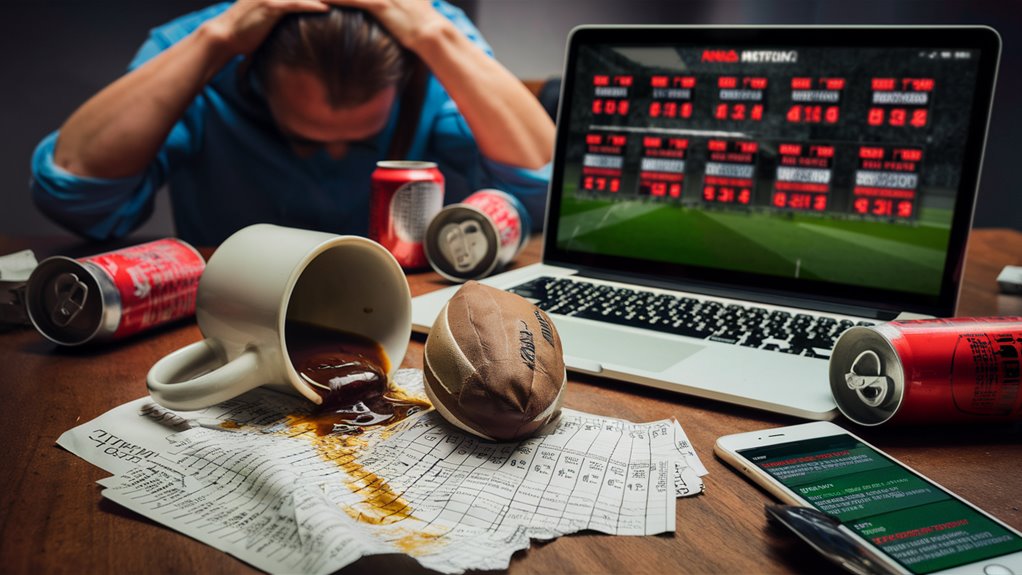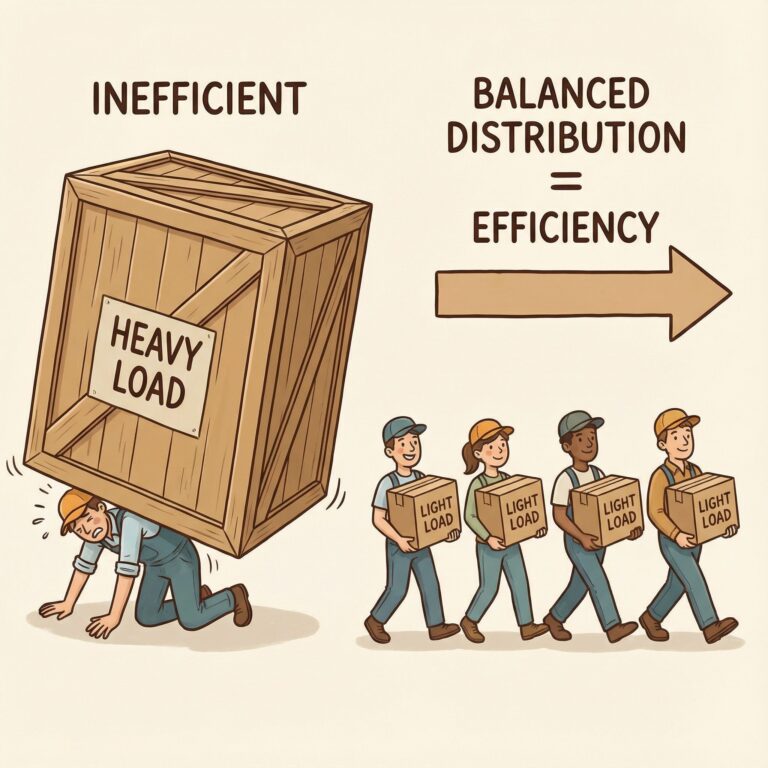
Easy Steps to Avoid Sports Betting Failures

Knowing and Flickerforge Blackjack dodging big sports betting flubs can lead to doing well in the long run or just losing again and again. Studies show that 73% of non-pro bettors do poorly mainly because they make three big mistakes: bad money control, betting with their hearts, and not doing enough homework.
Big Blunders in Sports Betting
Bad Money Control
Good sports bettors stick to strict bet limits of 1-3% of their whole funds for each bet. This careful way keeps big losses away and lets their money grow well. Pros keep track of all bets, keep detailed notes, and always stick to their set limits.
Emotional Betting
Good betting plans get a win rate of 55-60%, while betting with your heart tends to make you lose. Smart bettors spend 30-45 minutes looking over each bet, using stats, not just gut feels or liking a team more.
Chasing Losses
Stats tell us that 67% of problem gamblers mess up by trying to win back lost money by betting bigger. This bad cycle often makes their money troubles much worse. Smart bettors count losses as part of the game and keep their bet sizes the same, no matter past results.
Unchecked Tips
Using tips without checking or letting who you root for make you bet a certain way often means losing money. Winning bettors work hard on their homework, look at good stats, and base their choices on strong facts, not just guesses or emotional ties.
Skipping Homework
Pro sports betting demands deep looks at team stats, player data, past matches, and what’s happening now. Winning bettors have a system for research, keep good records, and review patterns to find good bets.
These wise tips, backed by deep data checks, build a strong plan for good sports betting and help you avoid usual traps that lead to constant losses.
Mastering Money Management in Sports Betting
The Big Base of Betting Success
Poor money control is the main cause for betting bad, leading to about 80% of bad betting ends.
The base of good betting starts with having a special betting money pot – a separate stash just for betting, kept away from daily cash and saving for emergencies.
Best Betting Size Plan
Pro money control means using a planned way to decide bet size.
Top bettors keep their bets at 1-3% of their total money pot for each bet. This careful way guards them against big ups and downs in luck and helps grow money over time.
Risk Control and Bouncing Back
Key Money Safety Steps:
- Close tracking of all bets for checking how you do
- Firm loss limits to stop bad chasing
- Changing bet size based on how much money you have
When your money goes down by 20%, start betting half-stakes until things look up again.
This well-planned method cuts out betting with your heart and keeps your cash safe during hard times.
Pro sports betting winning mostly rests on keeping good money control, not just knowing sports well.
Getting What Chasing Losses Means in Sports Betting

The Thinking Behind Chasing Losses
Chasing losses is the worst mind trap in sports betting, with studies showing that 67% of problem gamblers do this.
When bettors try to make up for losses with bigger or riskier bets, they start making worse and worse choices, which hurts their money a lot.
How It Touches Your Choices
When on a losing run, the stress messes with thinking, leading to a noted 23% drop in smart decision-making.
This drop in smart thinking often pushes bettors to leave behind solid betting plans and risk control steps, making them jump into big, hasty bets.
Main Signs and How to Stop It
Important Signs:
- Betting bigger after losses
- Betting on sports you don’t know well
- Using emergency cash for betting
Good Ways to Stop It:
- Set firm stop-loss limits at 2% per bankroll
- Take must-have breaks (at least 24 hours)
- Stick to set betting rules
- 온카스터디
Risk Control Rules
Building strong money control habits and keeping to disciplined betting plans help you avoid the huge hurt of chasing losses.
Regular checks on how you bet and strict limits are key guards against this bad habit.
Betting With Feelings
The Mind Game of Emotional Betting: How Feelings Mess Up Your Betting Wins
Getting How Emotional Betting Works
Emotional betting really messes up your winning chances, with studies showing a 31% lower win rate than betting based on analysis.
This big difference shows why handling your feelings is key for lasting betting wins.
Typical Emotional Betting Ways
Three main ways emotional betting shows up:
- Liking one team too much: Bettors think their top team will win more often by 18% more than what’s real
- Betting more after winning: Feeling too sure after some wins
- Revenge betting: Trying to win back losses fast
Setting a Smart Betting Plan
Choosing by Data
Set up fixed betting rules including:
- Odds checks
- Stat signs
- Top bet limits
- Full bet logs
Checking Stats Well
Keeping good records cuts down emotional betting by 47%.
Keep deep logs of:
- Why you bet
- How it turned out
- How well you are doing
Controlling Feelings
Must-Wait Rule
Put in a must-wait 30 minutes before betting, which:
- Boosts smart thinking
- Cuts emotional effects by 62%
- Makes sure choices are fact-based
Using Facts
Focus on solid facts:
- Team numbers
- Player injuries
- Past game results
- Past face-offs
Why Doing Your Homework in Sports Betting is So Important
Basics of Doing Homework
Pro betting analysis needs lots of research, yet studies find that 73% of bettors spend less than 10 minutes checking their bets.
Good betting calls for a thorough check of lots of data points, including team stats, how players are doing, data on past matches, and what’s up with the team now.
Need to Spend Time on Homework
Dedicated bettors should use 30-45 minutes at least to prep for a bet.
This time should cover good checks of 5-10 past games, past face-offs stats, and other relevant data.

